- Home
- Amy Jarecki
Rise of a Legend (Guardian of Scotland Book 1) Page 2
Rise of a Legend (Guardian of Scotland Book 1) Read online
Page 2
“Quite an ambition.” He held the seal up and peered through the plastic. “But isn’t one man’s truth another man’s lie?”
Her shoulders tensed as if he’d issued a slap. “I don’t think so. It’s the job of the journalist to give an unbiased account of the facts. That’s where history errs—too many reporters skewing the truth.” She could have debated Walter’s statement for the rest of the day, but instead she pointed to the seal. “How do you think that got here?”
“Not sure. Wallace could have lost it himself, or it could have been a keepsake carried by one of Bruce’s men.”
“Wouldn’t it be cool if it was held by Sir Robert Boyd? If my facts are right, he rode with Wallace and then with Robert the Bruce.”
Walter’s eyes bulged behind his comical glasses. “You do ken your history.”
Eva glanced longingly at the stamp. “I wish I knew more.”
***
On her way to the dig site the next morning, Eva’s car again turned right onto the unmarked road to Fail. She could have sworn the Fiat turned on its own but that would have been absurd. Regardless, the detour wouldn’t cause much of a delay. Giving in to her intuition, she drove straight to the church ruin she’d found the day before.
The sky violet above, magenta and orange hues illuminated the eastern horizon as she parked beside the old ruin. Good, I’m in time to see the sunrise.
As usual, the morning air was cooler than she liked, and she covered her pink NYU sweatshirt with a blue, down-filled vest. The grass a bit boggy, water bubbled beneath her hiking boots with every step. Ever since arriving at the dig she’d been thankful she’d had the wherewithal to purchase a sturdy pair of waterproof boots—red ones.
She stepped across a threshold where the door once would have been. Rectangular quarried blocks covered with moss lay scattered amid the grass, shaded by a canopy of birch and an inordinately tall ash tree. Eva stood for a moment. Tingles spread over her shoulders as if someone had just blown on her neck.
She glanced behind. Nope, she was still alone.
To the east, the oranges and violets of the sunrise pulled Eva toward the old church. She moved into the center of the ruin and faced the sun. Just as the master mason would have planned it in medieval times, rays gradually climbed the lone east-facing wall of the sanctuary. Luminous light sparkled around on the outer corners of the only remaining wall. Somehow it survived the ravages of time.
Her breath caught when a ray streaked down from the wheel-shaped window, as if an angel shone a beam of light straight onto Eva’s face. She squinted.
Goosebumps rose across her skin. Gripped by the sudden urge to sing a refrain from the Hallelujah Chorus, Eva opened her mouth but couldn’t make her voice work. The air around her levitated as the sun centered itself inside the circular window atop the crumbling wall. In fact, her body became weightless. If it weren’t for the angle of her foot awkwardly resting on a stone, Eva would have sworn she was floating.
Continuing up the wall, the sun’s light had nearly passed over the window when a flock of mourning doves took flight from the canopy made by the enormous ash. For the second day, the sensation of weightlessness made the woes lift from her shoulders and her mind soar with the birds.
She stared at the wall, not wanting to move. Her mind clear, her fears gone, Eva found her place of calm serenity.
“This church is magical, isn’t it?” Walter Tennant’s voice whispered directly behind her.
But Eva didn’t jolt this time. Her gaze remained fixed on the window, as if she expected the professor to appear. A dove landed on the sill and stared at her.
Taking a deep breath, Eva turned, faced the archaeologist and pointed. “The sunrise. It lined up perfectly with the wheel window. When I drove past yesterday, I thought it might, but wanted to see for myself.”
Now that the ethereal moment had passed, she studied him with puzzlement. “What…Why…How did you know I’d be here?” Her fists flew to her hips. “And why did you happen by this place at this very moment?”
He chuckled, cupping his chin between his thumb and pointer finger. “No reason, really. I’ve often driven past these ruins.”
“Honestly?”
“Aye.” Walter took a seat on the remains of the wall and patted the spot beside him. “This once was Fail Monastery. It was established in the Trinitarian Order by John de Graham in twelve fifty-two.”
“Trinitarian?” Eva didn’t recall the order from her studies. “That’s unusual, isn’t it?”
“Nay, not in those times. They had friaries all over—wore white vestments with a large red-and-blue cross.” Walter drew a cross on his chest with his finger.
Eva scrutinized the surroundings—pastoral land sparse with trees, but no other signs of ruins. “If this was a monastery, there would have been a lot more to the grounds than just this nave. What happened? Did it fall victim to The Reformation?”
“Not entirely. And it wasn’t a well-to-do sect. The Trinitarian monks were charged with the duty of rescuing Christian captives from slavery.” Walter crossed his ankles and looked down in thought. “I reckon they were the most Christian-like of all the orders. They never had much—couldn’t compete with wealthier orders because of their generous philanthropy.”
Eva smoothed her hand across the stone at her side. “I think it’s a shame so many great castles and churches have fallen into ruin.”
“I agree. You ken William Wallace could have spent a great deal of time right here. After all, he had an interest in the priesthood.”
She let Walter’s words sink in for a moment while a hundred questions swarmed about her head, but one stood out. “So, since we know Wallace studied to be a priest, was Blind Harry incorrect when he wrote William was married to Marion Braidfute?”
“Ah yes, the master sixteenth-century poet. As I said before, you must read between the lines of Harry’s writings—there are nuggets of truth betwixt the babble.” Walter’s bottom lip jutted out with his shrug. “But no one knows if William was married. Given his education, it doesn’t stand to reason, though. And there’s no record that Marion existed.”
“True, but at that point in time it wasn’t unusual for female births to go unrecorded.” Eva stood and looked at the window again. “I wish I could travel into the past and write his true story.”
“Och aye, me as well, but I wouldn’t be able to sit back and allow history to run its course.”
She faced him. “Oh, I could. That’s the essence of being a journalist—to be impartial and report the facts as they truly occur.”
He rocked back. “Very interesting point of view, indeed. I’m afraid I’d try to intervene. Then Scotland might end up without the greatest hero and martyr who ever lived.” Walter spread his arms wide. “Wallace’s legacy is epic, legendary, larger than life. It has defined Scotland’s sense of pride for over seven hundred years. I’d be mortified if I did anything to jeopardize that.”
She tapped a piece of flagstone with her toe. “I have to agree with you there. I think he was exactly what the country needed.”
“You’d best believe it, lassie.”
She sighed. “If only we knew more about him…I mean really knew.”
The professor stood and stretched. “And that is up to archaeologists and historical journalists like us to uncover and report—maybe we’ll find more clues right here.”
Eva expected him to head to his car, but Walter moved to the very place she’d watched the sun shine through the window. “No one can change the past.” His voice grew ominous. “That is the only rule.”
She gave him a quirky look. He certainly was odd—even for a professor. Though he had an endearing air, sort of like a grandfather—someone she felt comfortable talking with. “May I ask you a question?”
“Depends.” Walter rolled his hand through the air.
“Have you ever lost someone close to you—someone who wasn’t supposed to die?”
Walter removed a large coin f
rom his pocket and smoothed his thumb over the surface. “Aye.” His hand trembled a bit. “Lost my twin sister when we were but in primary school.”
Eva drew in a quick breath. “I’m sorry.”
He opened his palm and looked at the coin. Eva peered a little closer, realizing the piece was very old and had a metal loop as if it might be a medallion worn around the neck.
“Now it’s my turn to ask you something,” he said, closing his fingers.
Eva pulled back—she shouldn’t have been so nosy. “All right.”
“You seem to be born with a silver spoon—you’re smart, beautiful, wealthy. Why did you volunteer for this dig?”
That was easy enough. “I’m a historical journalist with a deep love of Scottish history.” She stuffed her hands in the pockets of her down vest. “Anyone with my background would be thrilled to be here, regardless.”
“Aye?” The look on his face reminded Eva of her father’s expression whenever he caught her in a lie. “I think the reason goes far deeper.”
She swallowed.
“You were a favorite at the Times, a darling Scottish rose.” He wasn’t going to let up. “Had a stellar career in the making. But you walked away.”
Heat flared up the back of her neck. The last thing she needed to hear was a lecture. “How do know so much about my life?”
He gave her a disbelieving smirk. “You’re a top-notch journalist and you’re asking me?”
Eva folded her arms. Maybe the lecture wasn’t coming, but Walter sure knew how to push her buttons, and she wasn’t going to let it slide. “You said you lost your sister. Well, I lost my husband. A man I was planning to have a family with, a man who meant everything to me.”
Walter tossed the medallion in the air and caught it. “Och aye, I understand your loss well enough. And I feel for you, lass. I really do. But what I want to know is when will you decide to break down that wall you’ve built around yourself and get on with your life?”
She didn’t want to answer—didn’t want to have this conversation, but something in Walter’s stance demanded she reply. Damn him. “When the pain in my heart stops,” she whispered.
“That will come with time.” He positioned the artifact in his palm and smoothed his pointer finger around it. Then his enormous eyes met hers in challenge. “If you could do anything in the world, achieve any level of success, what would it be?”
“Aside from winning a Pulitzer?” She threw her head back with a rueful laugh, relieved the conversation had turned to something easier to discuss. “For me, it’s not about earning recognition. Not really. It’s about telling the story.” She took in a deep breath and met Walter’s pointed gaze, then stepped closer and squared her shoulders. By God, no one could change her mind about her single remaining passion. “I want to find something so intriguing…”
“Go on,” he said.
“…So intriguing, the entire world says wow.”
Walter smiled. “A worthy ambition.” He pulled a leather thong from his pocket and threaded it through the pendant’s loop. “I want you to keep this for me over the summer. It is said this medallion has powers that will direct you toward the path you are to travel.”
“You don’t believe in magic, do you, Professor?” she teased.
He tied both ends and slipped it over her head. “Aye, lassie.” He inclined his chin toward the wall. “A wee bit o’ magic happens every time the sun shines through that window up there.”
She grasped the medallion and read the inscription. Verum est quasi malis navis in nocte.
“It means: truth is like a beacon.” Walter reached in and turned it over. “And on the reverse it reads: but few choose to follow.”
With a couple years of college Latin under her belt, Eva read the inscription on the back. Sed pauci volunt sequi. “If you believe this, then yesterday why did you say one man’s truth is another man’s lie?”
Walter shrugged. “I wanted to see how you’d respond. You see, I believe we need someone who has a fervent hunger for the truth—someone who’s willing to allow history to unravel so she can share her unfettered story with the world—the one that just might make people say wow.”
Not quite sure what to say, Eva looked down at the bronze disk while another breeze tickled the back of her neck bringing on a swarm of tingling goosebumps. “Well, thank you. I’m honored you trust me with such a keepsake.”
“Let us hope your sentiments don’t change after…”
“After?”
He glanced up at the window and stroked his chin. “The summer’s end.”
She wrapped her fingers around the medallion, surprised that it felt warm after having been suspended in the cool air. “Where did you find this piece?”
“A young monk gave it to me right before I tried to alter the past.” Walter made no sense at all.
“What?” Eva asked.
The professor batted his hand in front of his nose. “Never mind. That story’s for another time and I must be on my way. After your momentous find, there’ll be more reporters at the dig site today, mark me.”
Eva started to follow him, but he stopped and held up his palm. “Stay here for a while. I wouldn’t want you to miss the serenity Fail Monastery brings to those who allow these crumbled walls to speak. I interrupted your moment of solace. Carry on.”
Watching Walter head to his car, Eva puzzled. He’s a bit cryptic that one.
After he drove off, the trees rustled above and a welcomed, woodsy scent fragranced the sanctuary. Suddenly heavy-lidded, Eva sat cross-legged and looked up at the window. “What have you seen in all the centuries you’ve stood there? Happy times and unfathomable desolation, I’d bet. You most certainly were built in a time of brutality—a time when human life was not valued as highly as it is today.”
“You must not change the past,” Walter’s voice echoed in her head. But those hadn’t been his exact words. Regardless, Eva was too tired to rationalize any of the professor’s mysterious prattle.
Placing her elbow on a fallen stone, she yawned. Overcome with sleepiness, she rested her head in the crook of her arm and closed her eyes.
I want to find my wow.
Chapter Two
Scottish borders, 1st May, the year of our Lord, 1297
William Wallace galloped his warhorse toward the village of Lochmaben, a score of men following in his wake. Unable to reach the town fast enough, he could not pull his gaze away from the black smoke billowing ahead—a sure sign the messenger had been right.
He’d never prayed so hard for a man to be wrong.
Sour bile churned in his stomach.
Dear Lord, I cannot be too late.
But his gut told him differently. Approaching the cottages near the English fort, the smoke grew thick as fog. Not a woman wept or infant cried. An eerie quiet wafted through the air with the billowing blackness. William drove his horse forward and pulled his mantle across his nose, his eyes tearing at the sting.
Father John Blair rode in beside him. “My God.”
Though the butchering had become a common scene, William would never grow accustomed to it. Scots men, women and children lay face down in the mud, their blood turning the puddles to a sickly maroon. Others hung by the neck, suspended from ropes affixed to the lintel of the burning barn. The ropes creaked on the wood, swinging back and forth in a demanding rhythm, screaming outrage as their lifeless bodies swayed.
“Cut them down,” William growled.
Riding further into the war-torn border village, William’s throat thickened. None of this made sense. A madman had invaded his beloved Scotland and his countrymen paid in blood with these nonsensical raids.
Since Edward Plantagenet sacked Berwick and Dunbar one year past, William had formed a secret militia of a score and ten men. But his efforts were not enough. Worse, the Scottish nobles had been hogtied—any insurrection on their part and the upper class would face ruination. The nobility could lose not only their lands, but indeed their fa
milies could end up ruined by the same murderous tyranny William and his men witnessed this day. Forced to sign an oath of fealty, none of the great men in Scotland could stand against the mightiest army in Christendom.
Not unless they are united.
But the day of emancipation seemed a passing dream. Edward had imprisoned the King of the Scots, John Balliol in the Tower of London. English raids grew ever worse. And now the bastards had lured William’s father and other influential men into their clutches.
Many faces of the fallen were familiar.
A gust of wind cleared the smoke a bit. Gulping back a heave, William wished it hadn’t.
Dread iced through his veins as he inched his horse through the boggy street.
Though the man lay flat on his face, there was no mistaking Wallace gazed upon the remains of his father. All shreds of hope dissolved. The back of Da’s legs had been deeply cut, as if the bastards sliced through his sinews to take the big man to his knees. And by the wounds encrusted with blood, they’d attacked his body with spears and knives.
Disbelief clutched William’s heart into a tight ball. He’d experienced hate before, but never an all-consuming malignity that seeped from his skin like a sickly plague. Sucking in gasping breaths, his chest heaved. His gaze shifted left then right. The cowards have fled? “They’d best not sleep.” His voice tremored. “For I will hunt down each of these murderers and watch the life flee from their eyes as they suffer the cold iron of my sword.”
“The blackguards’ tracks lead north.” Blair stepped beside him, his voice sounding like the toll from a lone church bell announcing a funeral.
William wiped his eyes. Gritting his teeth, he dismounted and staggered to his father’s side. His tears were no longer caused by the smoke. They represented the anguish spreading through his limbs—his bleeding heart, stunned to the point where every beat pained him. Longshanks had taken his lust for power too far. William had seen annihilation by the English, carried out in the name of their bloodthirsty king, but never had Longshanks’ sword struck kin. William’s knees turned boneless as he dropped beside his father.

 The Highland Rogue
The Highland Rogue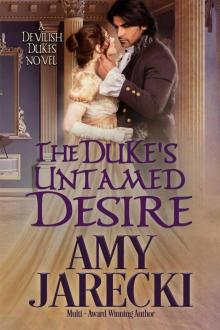 The Duke's Untamed Desire
The Duke's Untamed Desire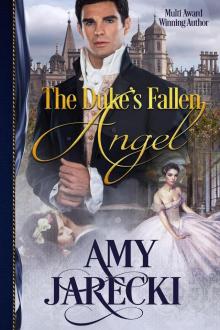 The Duke's Fallen Angel (Devilish Dukes, #1)
The Duke's Fallen Angel (Devilish Dukes, #1)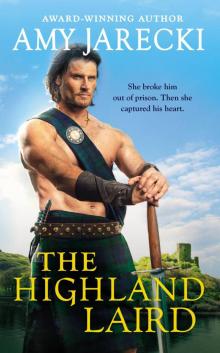 The Highland Laird
The Highland Laird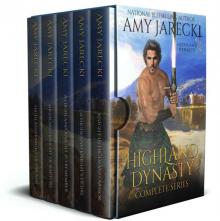 The Highland Dynasty: The Complete Series
The Highland Dynasty: The Complete Series Highland Warlord
Highland Warlord Highland Warlord (The King's Outlaws Book 1)
Highland Warlord (The King's Outlaws Book 1)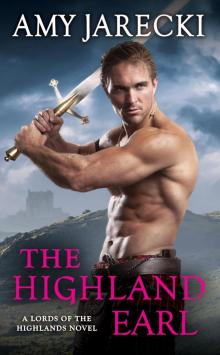 The Highland Earl
The Highland Earl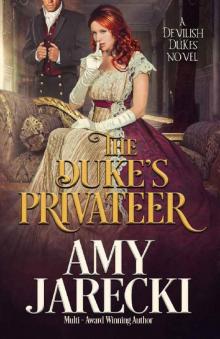 The Duke's Privateer (Devilish Dukes Book 3)
The Duke's Privateer (Devilish Dukes Book 3)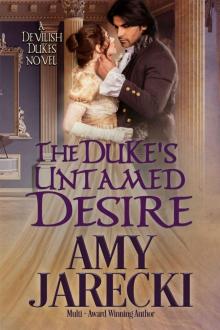 The Duke's Untamed Desire (Devilish Dukes Book 2)
The Duke's Untamed Desire (Devilish Dukes Book 2)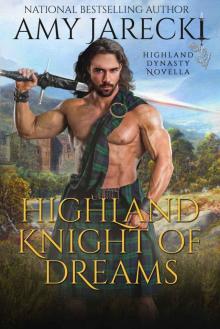 Highland Knight of Dreams: Scottish Historical Romance (Highland Dynasty Book 5)
Highland Knight of Dreams: Scottish Historical Romance (Highland Dynasty Book 5) The Highland Duke
The Highland Duke Body Shot
Body Shot The Highland Renegade
The Highland Renegade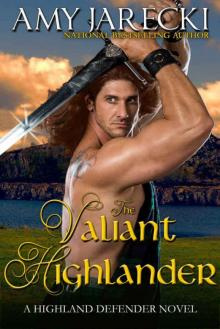 The Valiant Highlander (Highland Defender #2)
The Valiant Highlander (Highland Defender #2)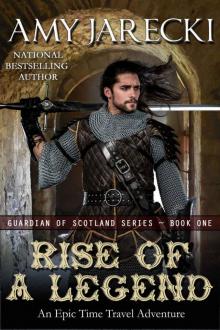 Rise of a Legend (Guardian of Scotland Book 1)
Rise of a Legend (Guardian of Scotland Book 1)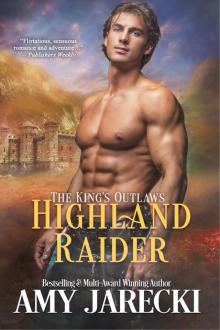 Highland Raider
Highland Raider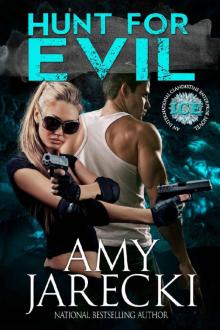 Hunt for Evil (ICE Book 1)
Hunt for Evil (ICE Book 1)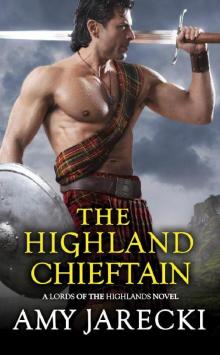 The Highland Chieftain
The Highland Chieftain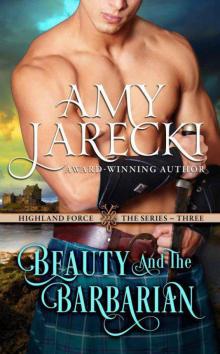 Beauty and the Barbarian
Beauty and the Barbarian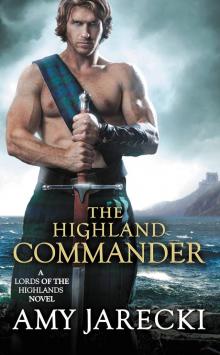 The Highland Commander
The Highland Commander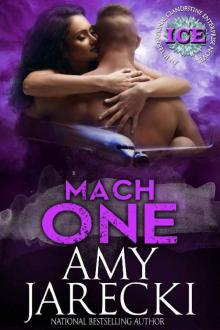 Mach One: An International Clandestine Enterprise Novel (ICE Book 3)
Mach One: An International Clandestine Enterprise Novel (ICE Book 3) The Chihuahua Affair: Best in Show
The Chihuahua Affair: Best in Show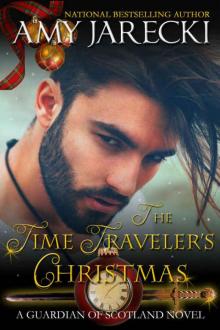 The Time Traveler's Christmas (Guardian of Scotland Book 3)
The Time Traveler's Christmas (Guardian of Scotland Book 3)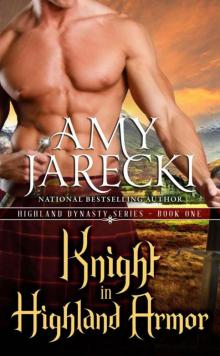 Knight in Highland Armor
Knight in Highland Armor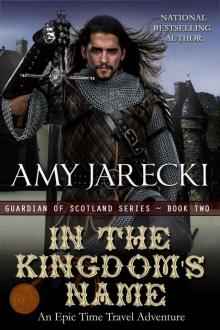 In the Kingdom's Name (Guardian of Scotland Book 2)
In the Kingdom's Name (Guardian of Scotland Book 2)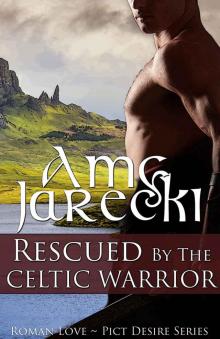 Rescued by the Celtic Warrior (Roman Love ~ Pict Desire Series Book 1)
Rescued by the Celtic Warrior (Roman Love ~ Pict Desire Series Book 1)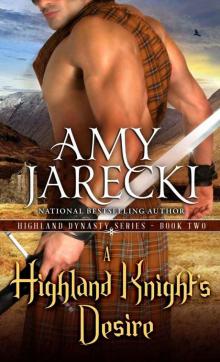 A Highland Knight's Desire (A Highland Dynasty Book)
A Highland Knight's Desire (A Highland Dynasty Book)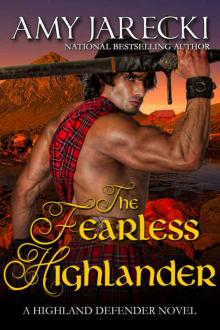 The Fearless Highlander (Highland Defender Book 1)
The Fearless Highlander (Highland Defender Book 1)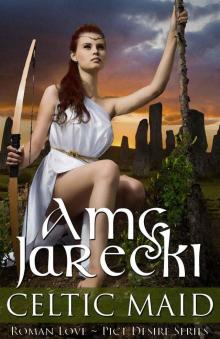 Celtic Maid (Roman Love ~ Pict Desire Series Book 2)
Celtic Maid (Roman Love ~ Pict Desire Series Book 2) Captured by the Pirate Laird
Captured by the Pirate Laird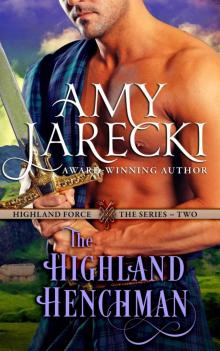 The Highland Henchman
The Highland Henchman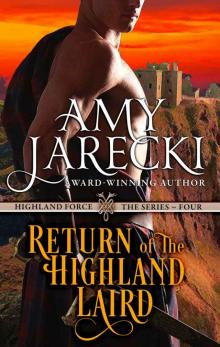 Return of the Highland Laird: A Highland Force Novella
Return of the Highland Laird: A Highland Force Novella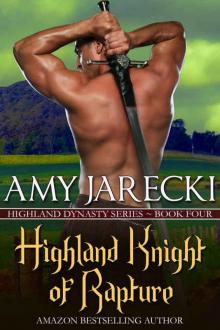 Highland Knight of Rapture (Highland Dynasty Book 4)
Highland Knight of Rapture (Highland Dynasty Book 4)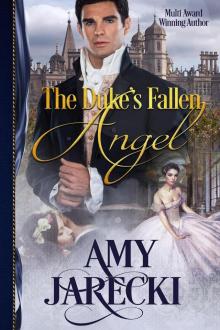 The Duke's Fallen Angel
The Duke's Fallen Angel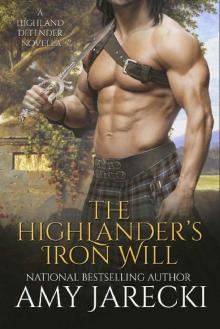 The Highlander's Iron Will: A Highland Defender Novella
The Highlander's Iron Will: A Highland Defender Novella